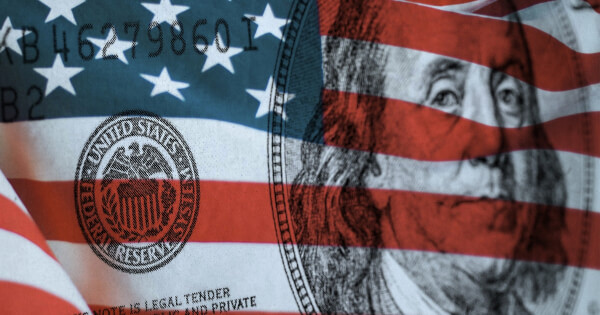A new Senate bill, called the CBDC Anti-Surveillance State Act, proposes to severely limit the Federal Reserve’s involvement in CBDCs.
A new Senate bill titled the “CBDC Anti-Surveillance State Act” has been introduced to amend the Federal Reserve Act in a move that could impact the future of U.S. digital currencies. The bill aims to prohibit the Federal Reserve from providing products or services directly to individuals, including issuing central bank digital currencies (CBDCs) for monetary policy purposes.
Implications of the proposed law
The bill proposed by Senator Cruz highlights growing concerns among U.S. lawmakers about privacy and the potential for increased surveillance through the use of CBDCs. By limiting the Federal Reserve’s ability to issue CBDCs directly to individuals or indirectly through financial institutions, the bill seeks to ensure that digital currencies do not compromise the privacy protections offered by physical coins and currencies.
Protection for public and private calls
The bill is further designed to protect open, permissionless, private dollar-denominated currency, fully protecting the privacy of U.S. coins and physical currency. These protections could potentially foster the growth of decentralized digital currencies that offer more privacy than CBDCs.
Position on monetary policy and digital assets
Under the bill, the Federal Reserve and the Federal Open Market Committee would be prohibited from using CBDCs or similar digital assets to conduct monetary policy. This provision sets out the bill’s supporters’ clear stance on maintaining separation between digital currency issuance and traditional monetary policy instruments.
Issuance of a CBDC requires congressional approval.
The bill emphasizes that the Federal Reserve cannot issue CBDCs without explicit approval from Congress, effectively placing the power to create U.S. CBDCs in the hands of the nation’s elected representatives rather than the central banking system. no see.
Potential changes in digital currency dynamics
If passed, the bill could change the dynamics of digital currency development in the United States, potentially slowing the launch of CBDCs while encouraging the use of existing cryptocurrencies that meet the bill’s privacy standards. It also sets the stage for broader discussions on the role of central banks in the digital currency space and the importance of privacy in the digital age.
Looking into the future
As the bill progresses through the Senate, the Federal Reserve’s future actions, the privacy of digital currency users, and the potential impact on the overall trajectory of U.S. CBDCs will be closely watched by stakeholders in the blockchain, cryptocurrency, and financial sectors. .
Image source: Shutterstock

